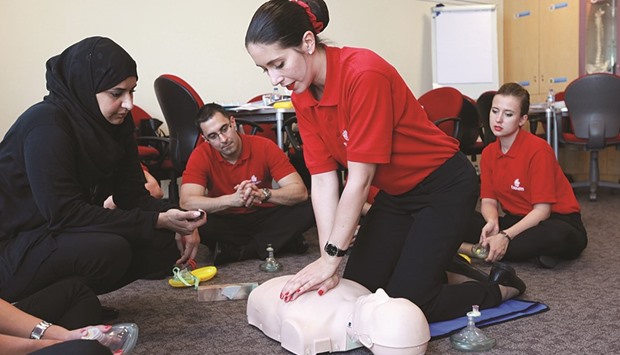Emirates delivered nearly 23,000 hours of medical training for cabin crew and pilots in 2016, ensuring that they are ready to assist passengers on board, the airline said yesterday.
“Emirates, the largest airline by international traffic, operates over 3,500 departures a week, or more than 194,000 flights in 2016. In those 12 months, the airline handled more than 60 flight diversions due to medical emergencies,” a press statement noted.
Flight diversions due to in-flight medical emergencies make up a tiny portion of the millions of flights operated annually, but it is costly for airlines. With more people travelling by air, the actual number of in-flight medical events has been gradually increasing over the years.
The airline revealed that a single flight diversion can cost it “anything from $50,000 to over $600,000”, depending on the nature of the diversion, which includes fuel, flight catering, landing and ground handling fees, air navigation cost, passenger rebooking costs and onward connection, as well as other associated costs to care for crew and passengers.
Adel al-Redha, Emirates’ executive vice-president and COO, said: “If there is a medical emergency on board, our crew has the training and equipment to help them assess the situation and deliver the best possible outcome for the affected passengers.”
All Emirates cabin crew go through a comprehensive initial training programme, recurrent training to keep their skills up to date, as well as additional specific training for the use of on board medical equipment, according to the statement.
The medical training that Emirates cabin crew members undertake includes both theory and practical aspects. It prepares them to recognise and deal with common situations, but more importantly handle rare but life-threatening events when time is of the essence.
The airline said it has invested more than $7mn in the installation of its medical equipment on board, with annual maintenance costs being a further $1.7mn. Equipment on every Emirates aircraft include emergency medical kits, oxygen bottles, resuscitators, a defibrillator, a telemedicine unit, and a 24/7 satellite medical advisory service that connects crew to specialist aviation medical consultants who can help assess a passenger’s situation in real time.
On an average, Emirates’ crew makes about 20 calls to the medical advisory service per 100,000 passengers flown.
Most calls do not result in a diversion, but the professional consultation helps the operating crew make better decisions and offer the right support to the affected passengers.
Meanwhile, al-Redha said the diversion location selected may be someplace where medical costs are expensive and travellers should consider procuring the appropriate insurance before they travel.

emirates
